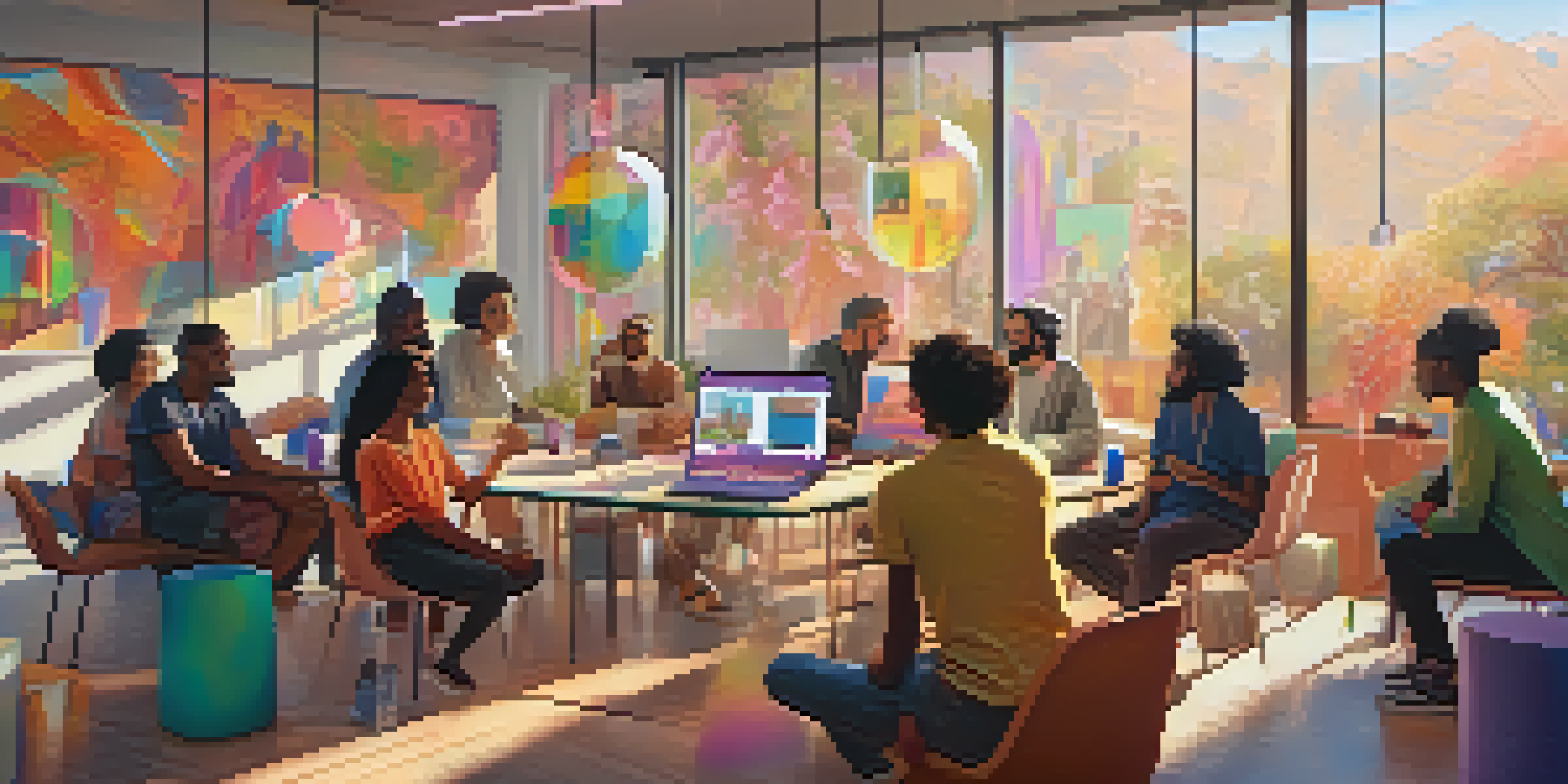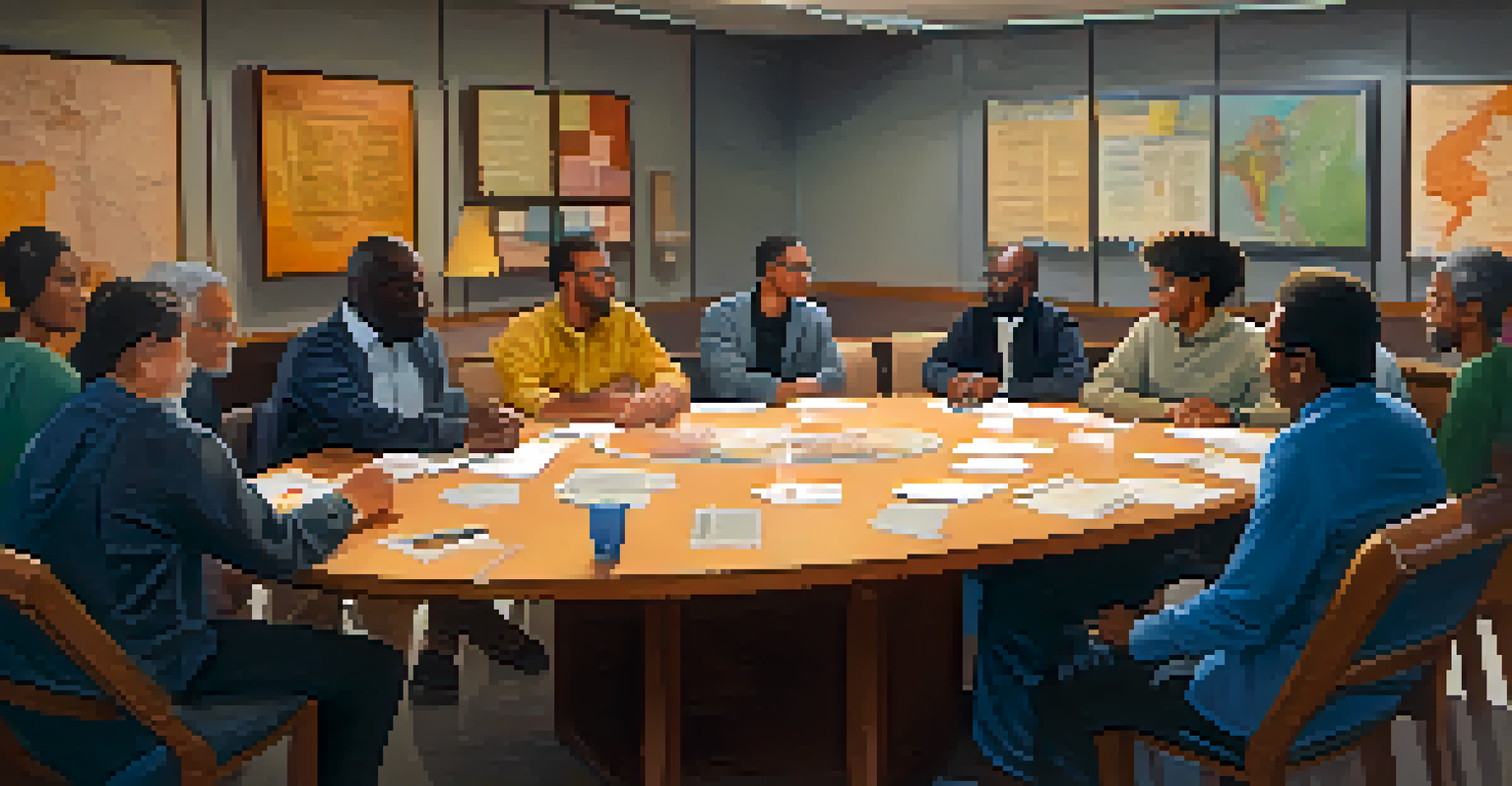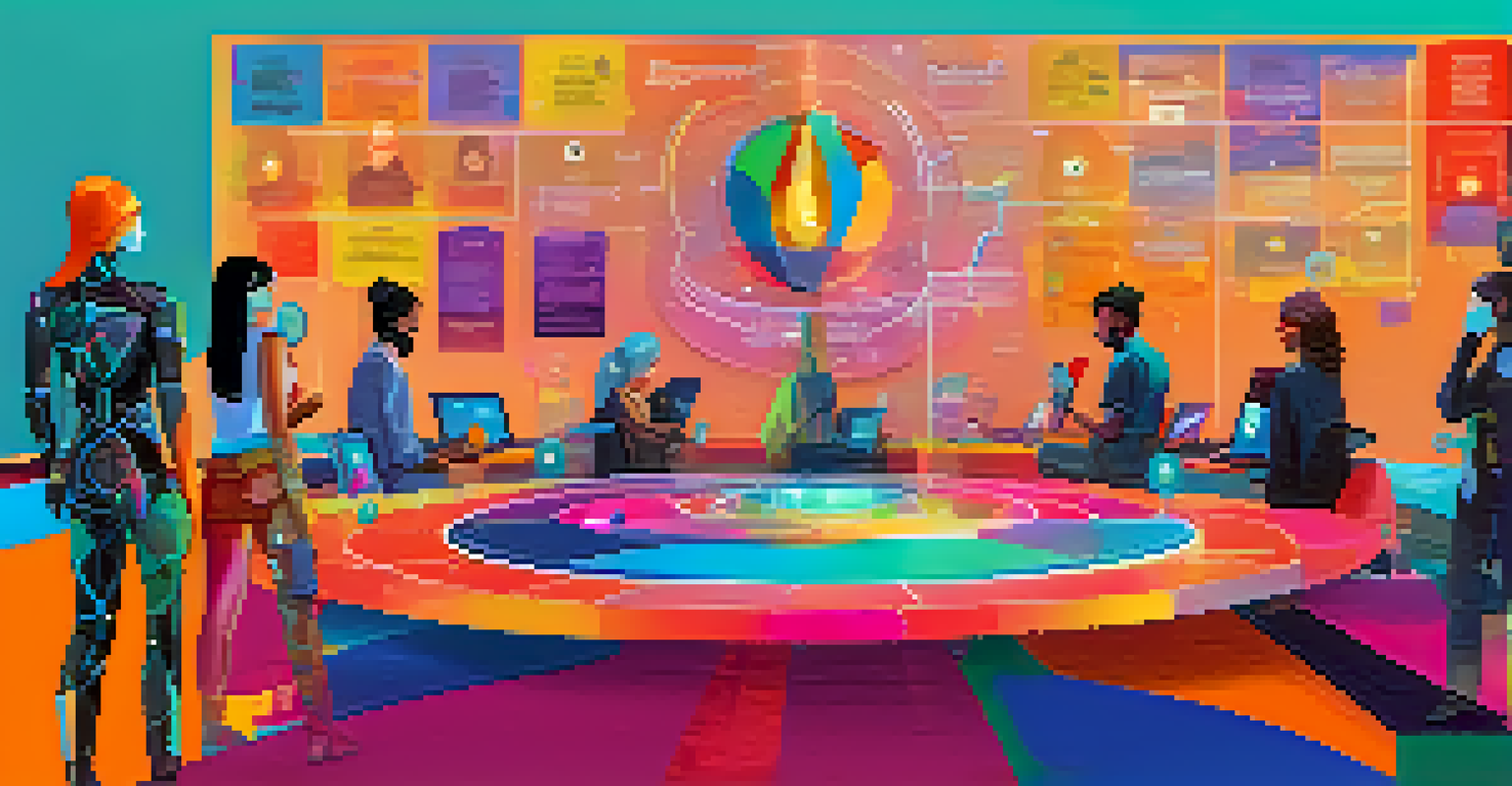Challenges of Decentralized Governance in NFT Communities

Understanding Decentralized Governance in NFT Communities
Decentralized governance in NFT communities refers to a system where decision-making is shared among members rather than being concentrated in a few hands. This approach aims to empower community members by giving them a voice in the direction of the project. However, while the idea sounds appealing, it can lead to significant challenges that need to be addressed for effective governance.
Decentralization allows for a more democratic decision-making process, but it also requires a commitment to transparency and accountability.
One of the core principles of decentralized governance is transparency, which ideally fosters trust among participants. Yet, in practice, achieving genuine transparency can be quite complex. It requires clear communication channels and processes that everyone understands, which may not always be the case in NFT communities with diverse members.
Additionally, the decentralized nature can make it difficult to establish a unified vision or direction. With many voices contributing to the conversation, finding common ground can often feel like herding cats. This can lead to confusion and frustration if not managed properly, impacting the community's growth and cohesion.
Balancing Participation and Decision-Making Power
In decentralized governance, every member's participation is crucial, but this can also become a double-edged sword. While inclusivity is a priority, it can create a situation where decision-making becomes bogged down by too many opinions. This paradox highlights the challenge of balancing the need for diverse input with the necessity for timely decisions.

For example, consider a community looking to launch a new NFT collection. If every decision requires input from all members, the process could slow to a crawl, leading to missed opportunities. Conversely, if participation is limited, it may breed resentment among those who feel excluded from the decision-making process.
Decentralized Governance Challenges
Decentralized governance in NFT communities can empower members but often faces challenges like transparency and unified decision-making.
Ultimately, finding a middle ground is vital. Many communities are experimenting with different governance models, such as delegate voting, where members can choose representatives to make decisions on their behalf, streamlining the process while still allowing for community input.
Navigating Conflicts and Disagreements
Conflicts are an inevitable part of any community, and decentralized governance can complicate conflict resolution. In NFT communities, where stakeholders often have strong opinions about the direction of a project, disagreements can escalate quickly. Without a clear mechanism for resolving disputes, tensions can lead to divisions within the community.
The power of a community lies in its diversity of thought and experience, which is crucial for effective governance.
Imagine a situation where a significant portion of the community disagrees on the artistic direction of an NFT collection. If there are no established protocols for addressing such issues, the community may find itself at a standstill, unable to move forward. This can erode trust and diminish enthusiasm among members, potentially jeopardizing the project's success.
To mitigate these challenges, many communities are implementing conflict resolution frameworks. These can include mediation processes or establishing dedicated governance teams that help facilitate discussions and find common ground among differing viewpoints.
Ensuring Accountability in Governance
Accountability is a cornerstone of effective governance, but it can be elusive in decentralized structures. In NFT communities, with no central authority overseeing actions, ensuring that members uphold their responsibilities can be challenging. This lack of accountability may lead to disengagement or even exploitation if not properly addressed.
For example, if a community member is entrusted with managing funds for a project but mismanages them, the decentralized governance model may struggle to hold them accountable. This can create distrust and deter participation from other members who may fear similar outcomes.
Balancing Inclusion and Efficiency
While member participation is essential, too many voices can hinder timely decision-making in decentralized governance.
To combat this issue, some communities are adopting transparency measures, such as regular audits and public reporting of activities. By establishing clear expectations and consequences for actions, communities can foster a culture of accountability that ultimately strengthens governance.
Addressing the Knowledge Gap Among Members
In many NFT communities, the knowledge level varies significantly among members, which can hinder effective governance. While some members may be well-versed in blockchain technology and NFTs, others might be newcomers with limited understanding. This disparity can create barriers to meaningful participation and informed decision-making.
For instance, a proposal requiring technical expertise may leave uninformed members feeling lost or intimidated, potentially stifling their contributions. This knowledge gap can lead to a hierarchy of voices, where only those with specific expertise dominate discussions, undermining the principles of decentralization.
To bridge this gap, communities can invest in educational initiatives, such as workshops or informational resources. By empowering all members with the knowledge they need, communities can foster a more inclusive environment that encourages active participation and informed decision-making.
Scalability Challenges in Governance Models
As NFT communities grow, the governance models that once worked may struggle to scale effectively. What works for a small group may not translate well to a larger, more diverse community. This scalability challenge can lead to inefficiencies and frustration among members as the community evolves.
For example, a simple voting process that was manageable in a small community could become unwieldy with hundreds or thousands of members. The logistics of gathering input and implementing decisions can become overwhelming, leading to delays and disillusionment.
Bridging Knowledge Gaps
Diverse knowledge levels among members can create barriers to participation, making educational initiatives vital for effective governance.
To address scalability, many communities are exploring innovative governance frameworks, such as quadratic voting or liquid democracy. These models aim to maintain inclusivity while streamlining processes, allowing communities to adapt as they grow without sacrificing their core values.
The Future of Decentralized Governance in NFT Communities
Despite the challenges, decentralized governance holds immense potential for NFT communities. As these communities continue to evolve, they have the opportunity to innovate and refine their governance models. Learning from past experiences and experimenting with new approaches can pave the way for more effective and inclusive governance structures.
The future may see the emergence of hybrid models that combine elements of centralized and decentralized governance, allowing for greater adaptability. By leveraging technology and community feedback, these models could create a more balanced approach that maintains member engagement while ensuring efficient decision-making.

Ultimately, the success of decentralized governance in NFT communities lies in their ability to adapt and respond to the needs of their members. By prioritizing collaboration and inclusivity, these communities can navigate the challenges and unlock the full potential of decentralized governance.